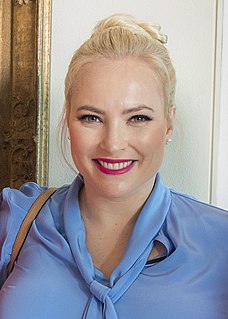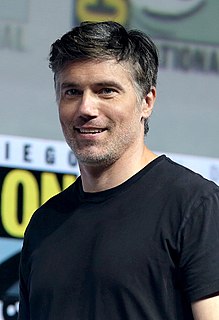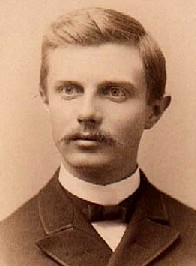A Quote by Meghan McCain
I grew up in a border state. I think immigration is an essential part of American history and American culture.
Related Quotes
What does have a chance of becoming law is a process that begins with securing the border. Currently the border is not secure and not just immigrants are coming across, but also drugs, weapons a whole series of problems. And I think that if you can prove to the American people that illegal immigration is under control, I think that the American people are willing to do something very reasonable about people who have been here for many years, who are not criminals, who are going to pay a fine, who are going to pay taxes, who are working.
What we need to do is to have a sensible approach to immigration. It needs to be open. It needs to be non-dogmatic and non-bigoted. We need to be firm but reasonable in the way we deal with the problem of illegal immigration. And we need to try to get as many of our immigrants who want to do so to become citizens as quickly as possible so that the American people will all see that this is a part of the process of American history, which is a good one for our country.
Lincoln is such an iconic figure in American history. He seems to reflect so many elements of American culture that we consider essential, whether it's the self-made man, the frontier hero, the politician who tries to act in a moral way as well as in a political way, Honest Abe. His career raises these questions that are still with us, the power of the federal government vis-à-vis the states, the question of race in American life, can we be a society of equals? There are so many issues central to Lincoln's career that are still part of our society one hundred and fifty years later.
I don't really identify with America, I don't really feel like an American or part of the American experience, and I don't really feel like a member of the human race, to tell you the truth. I know I am, but I really don't. All the definitions are there, but I don't really feel a part of it. I think I have found a detached point of view, an ideal emotional detachment from the American experience and culture and the human experience and culture and human choices.
One of the defining characteristics or difference between today's illegal immigration and the immigration of old is the immigrants of the late 1800s through the early 1920s came here desiring to become Americans. They wanted to become part of what was a unique and distinct American culture. They were all coming from tyranny of one kind or another.
































